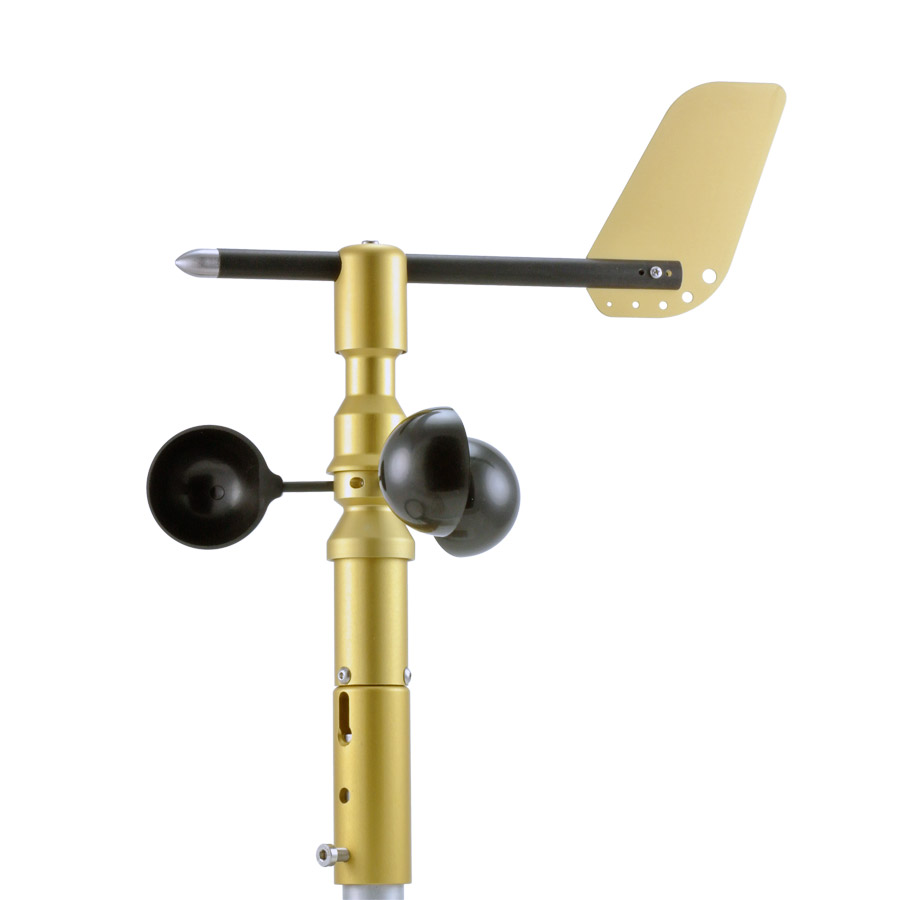While sustained winds are of interest, it is the wind gusts that generally cause damage . . . at least for those outside of tornado alley or on hurricane coast.
How do you measure a gust? With a Dyacon wind sensor, of course.
The latest firmware for Dyacon WSD‑1 now gives users more measurement parameters than other wind sensors on the market.
- Current wind speed
- Current wind direction
- 2 minute average wind speed
- 2 minute average wind direction
- 10 minute average wind speed
- 10 minute average wind direction
- and . . . gust
You get it all for the same price and the same operating current, <2 mA at 12 VDC. Now that’s a bargain! (Sorry, no free knife sets.)
Keep in mind that not all increases in wind speed represent a gust. Where other stations simply look for the maximum wind speed over a period of time, we implement a more technical definition. To meet the definition of a gust, we look for increases in wind speed of at least 10 knots (11.5 mph, or 5.1 m/s) above the 2 minute average. The gust value is retained for 10 minutes and replaced if a higher value occurs.
The sudden impact of a rapid change in wind is what often causes damage. After about 3 seconds, the structures are engulfed, and the pressure differential is reduced.
When it occurs, you’ll see this new value populated on my weather station at weatherunderground.com.
Eugene
